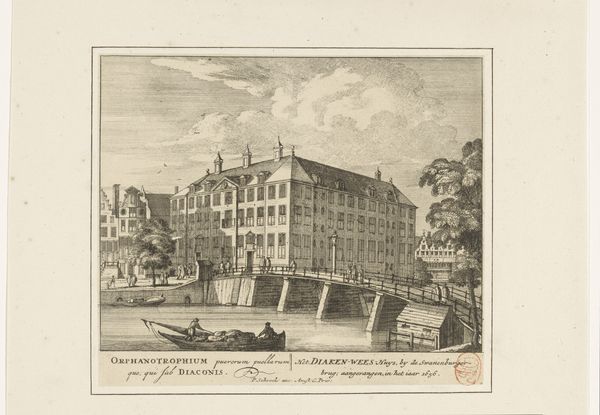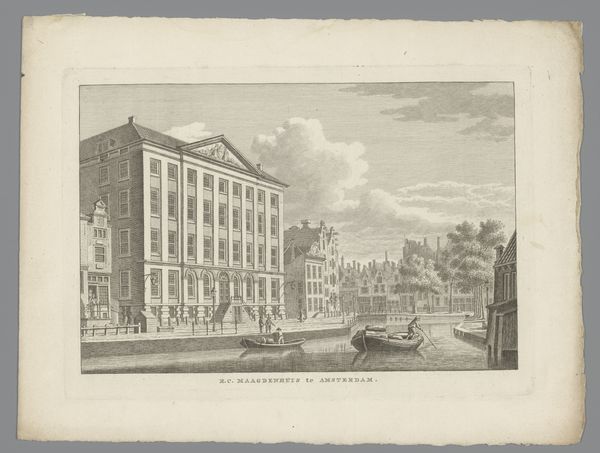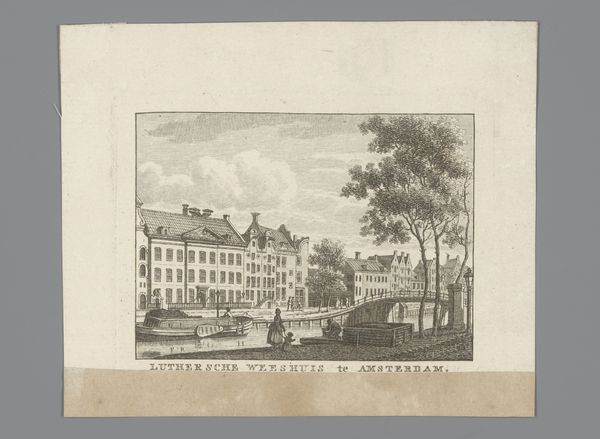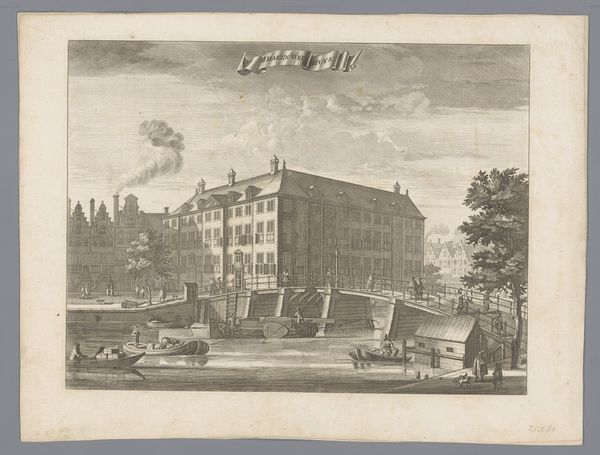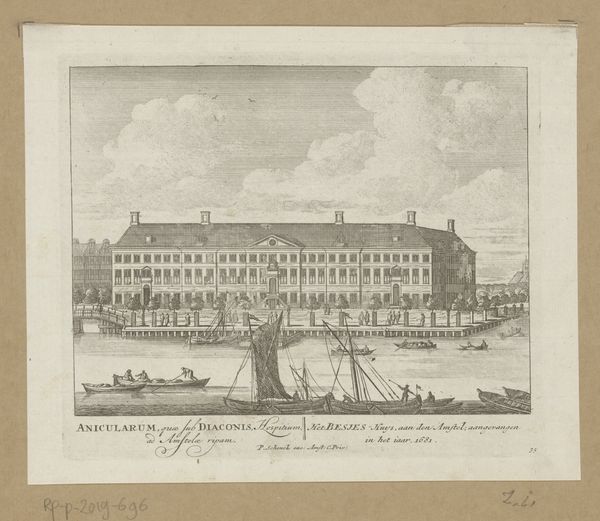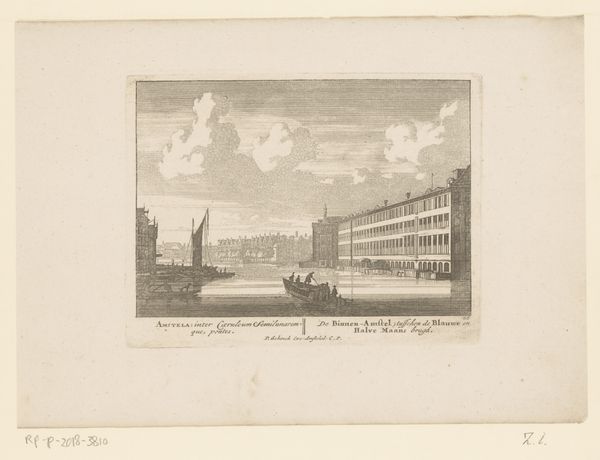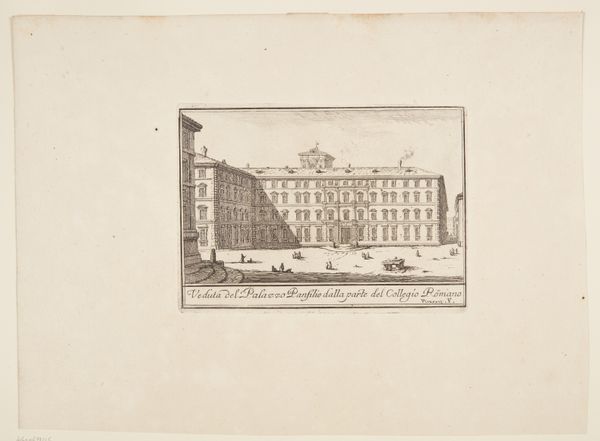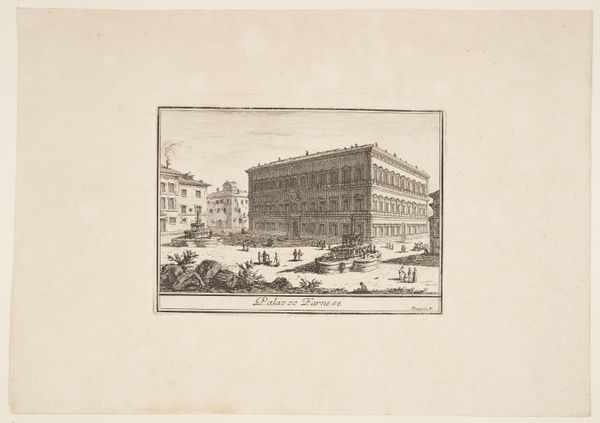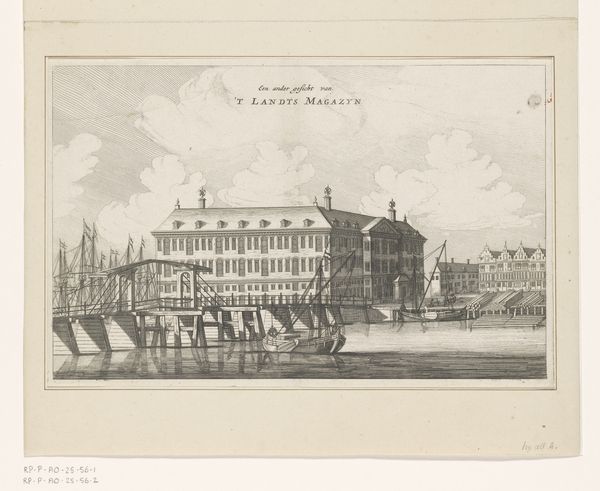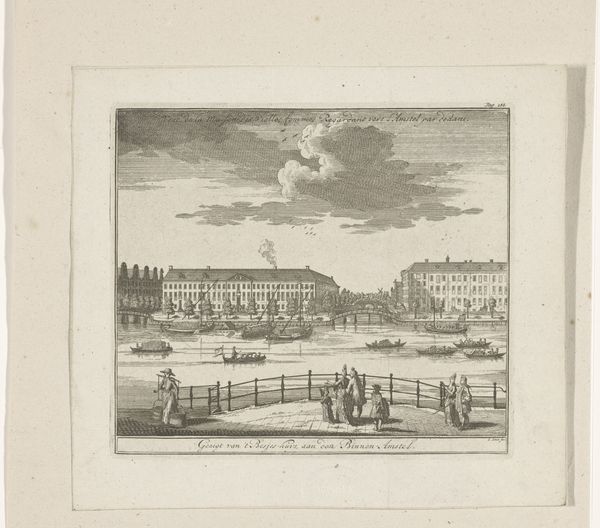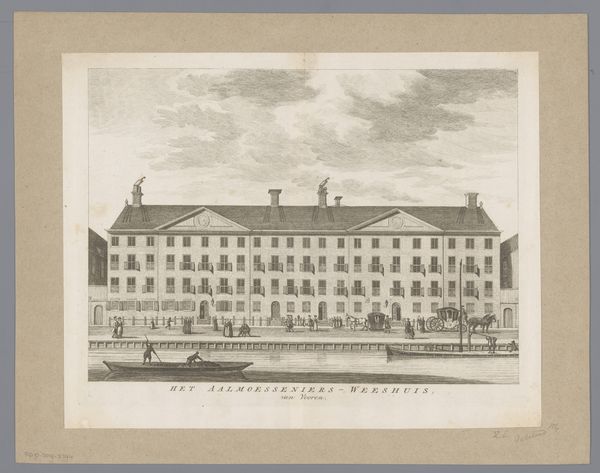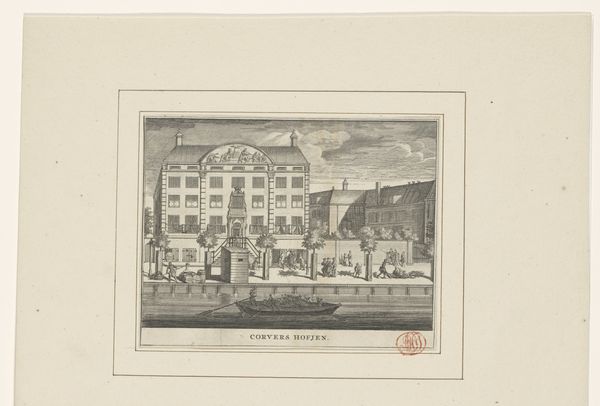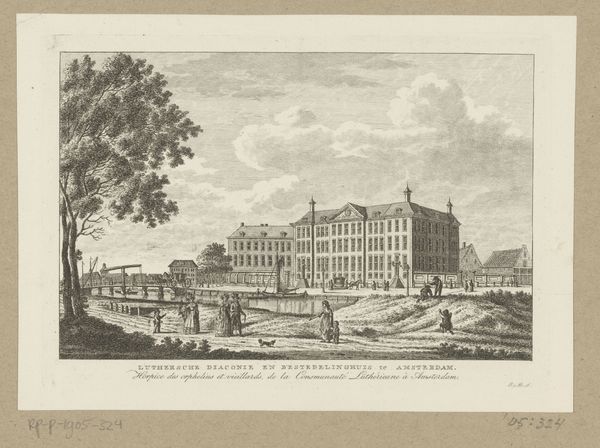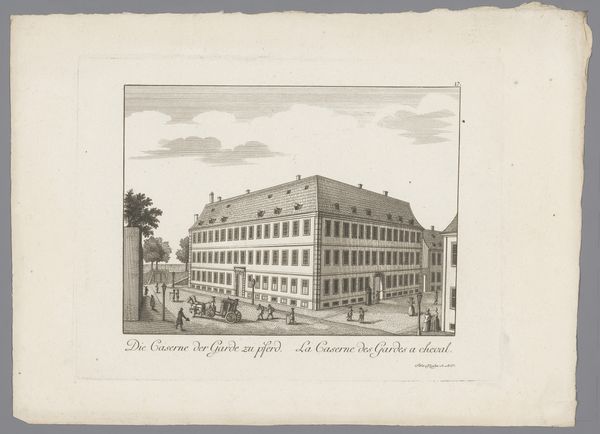
graphic-art, print, etching, engraving
#
graphic-art
#
dutch-golden-age
# print
#
etching
#
landscape
#
etching
#
cityscape
#
engraving
Dimensions: height 182 mm, width 201 mm
Copyright: Rijks Museum: Open Domain
Daniël Stopendaal created this print of the Diaconieweeshuis in Amsterdam using etching, a printmaking technique that uses acid to corrode the unprotected parts of a metal surface to create a design. This image invites us to consider the social and institutional history of 18th-century Amsterdam. Orphanages, like the one depicted here, were central to the city’s social fabric. The Diaconieweeshuis, run by the Dutch Reformed Church, provided care and education for orphaned children, reflecting the era’s emphasis on charity and social responsibility. Stopendaal’s print creates meaning through its detailed depiction of the orphanage’s architecture and its location on the waterway. Prints like these served not only as records of the city’s buildings but also as symbols of civic pride and social order. As historians, we can delve deeper by examining archival records, church documents, and other visual sources to fully understand the role of institutions like the Diaconieweeshuis in shaping Amsterdam’s social landscape. This artwork reminds us that art is deeply embedded in its social and institutional context, offering valuable insights into the past.
Comments
No comments
Be the first to comment and join the conversation on the ultimate creative platform.
